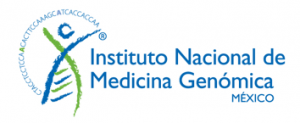INMEGEN-PHEM: National Institute of Genomic Medicine (INMEGEN)-Pharmacogenetics of Hypertension in Elderly Mexicans (PHEM)
 In Mexico, hypertension prevalence is around 30%. However, patients over 65 years old show a prevalence up to 64%. There are several risk factors for developing hypertension, including body weight, diet, exercise, alcoholism, smoking, age, and genetics.
In Mexico, hypertension prevalence is around 30%. However, patients over 65 years old show a prevalence up to 64%. There are several risk factors for developing hypertension, including body weight, diet, exercise, alcoholism, smoking, age, and genetics.
A recent study conducted in government hospitals in Mexico City, (Mexican Institute for Social Security [IMSS]) revealed that 70% of antihypertensive drugs prescribed are represented by ACE inhibitors, angiotensin II receptor blockers, and calcium channel blockers. The Federal Commission for the Protection against Sanitary Risk (COFEPRIS), an agency comparable to the FDA, has over 60 antihypertensive drugs approved for use in Mexico. Yet, approximately 50% of patients under treatment cannot control their blood pressure levels, and are prescribed different antihypertensive drugs using the trial and error approach.
We hypothesize that the identification of pharmacogenetic variants associated with drug response and safety may aid to expedite drug selection for initial treatment after hypertension diagnosis.
Recent studies have shown that Mestizos (Mexican people of mixed decent) from Mexico have significant allele frequency differences for known relevant pharmacogenetic variants and novel variants that are prevalent in this geographical region.
PHEM is a population-based, prospective, interventional trial of 500 Mestizos > 60 years old diagnosed with essential hypertension on ACE inhibitors, angiotensin II receptor blockers or calcium channel blockers. Our aim is to investigate pharmacogenetic variation, and pinpoint potential markers in these patients.
We have completed recruitment of 500 patients under treatment and extracted DNA from a blood sample. Genotyping will be performed using a custom GSA-Illumina which includes 300 AIMS for Mexican Populations.
- Vanessa Gonzalez-Covarrubias, INMEGEN, Principal Investigator
- Sergio Sanchez-Garcia, IMSS
- Dolores Mino-Leon, IMSS

